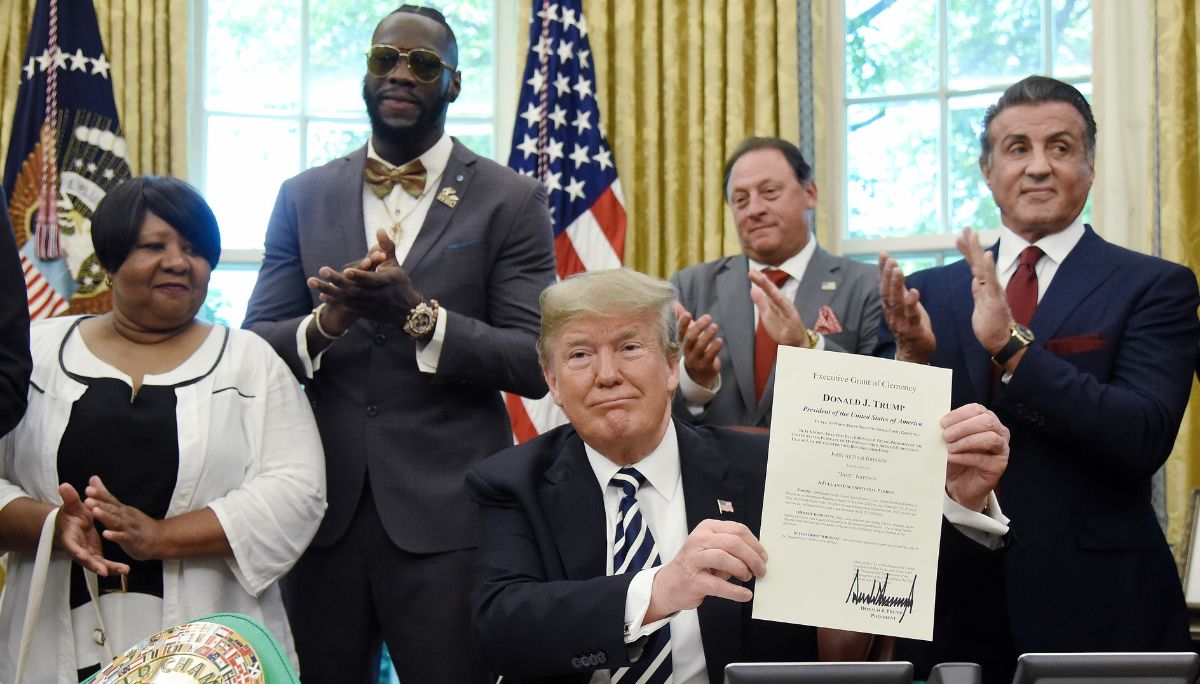Trump Plan: Granting Clemency to Imprisoned Individuals as One of His First Presidential Acts
In a surprising turn of events, President-elect Trump has stirred controversy with his recent declaration to grant clemency to imprisoned individuals as one of his initial acts upon taking office. This announcement has sparked intense debate and speculation about its implications and potential consequences. Let’s delve deeper into what this means and its significance.

Table of Contents
In a move that has captured the attention of the nation, the newly elected President has announced an ambitious plan to grant clemency to a significant number of imprisoned individuals as one of their first official acts. This bold initiative is a testament to the belief that everyone deserves a second chance and speaks to the administration’s commitment to addressing the complex issues surrounding the criminal justice system.
The Power of Mercy
Clemency, the power to pardon or commute sentences, has long been a cornerstone of the American legal system. It serves as a vital safety valve, allowing for the correction of unjust or disproportionate sentences and providing an avenue for redemption and rehabilitation.
Throughout history, this act of mercy has been exercised by presidents from across the political spectrum, often in response to changing societal norms, new scientific evidence, or a recognition of the inherent flaws in the criminal justice system.
A Closer Look at the President’s Clemency Plan
The President’s clemency plan aims to address a wide range of cases, from non-violent drug offenses to individuals serving excessive sentences under outdated mandatory minimum laws. The administration has assembled a team of legal experts and advocates to carefully review eligible cases, ensuring that the process is fair, transparent, and consistent with the principles of justice and public safety.
One of the key priorities of the plan is to address the disproportionate impact of harsh sentencing policies on marginalized communities. By granting clemency to individuals who have demonstrated rehabilitation and a commitment to positive change, the President hopes to reunite families, reduce the strain on overcrowded prisons, and provide a fresh start for those who have paid their debt to society.
In a recent statement, the President emphasized the importance of this initiative, saying, “Our criminal justice system should be guided by principles of fairness, compassion, and redemption. By granting clemency to those who have earned it, we are not only upholding these values but also strengthening our communities and giving individuals a chance to contribute positively to society.”
The Impact on Individuals and Families
For those who have been granted clemency, the President’s decision represents a life-changing opportunity. It means the chance to reunite with loved ones, seek employment, and rebuild their lives without the burden of a criminal record. For their families, it offers relief from the emotional and financial strain of having a loved one incarcerated.
The ripple effects of this act of mercy extend far beyond the individual cases. By demonstrating a commitment to second chances and rehabilitation, the President hopes to inspire others to embrace a more compassionate and humane approach to criminal justice, one that recognizes the inherent dignity of every person and their capacity for positive change.
Frequently Asked Questions
Q: What criteria will be used to determine eligibility for clemency?
A: The administration has outlined several key factors, including the nature and circumstances of the offense, demonstrated rehabilitation, and the potential impact on public safety. Each case will be evaluated on its individual merits by a team of legal experts and advocates.
Q: Will clemency be granted automatically, or will individuals need to apply?
A: While the President has the authority to grant clemency unilaterally, the administration has indicated that a formal application process will be established to ensure fairness and transparency. Details on this process are expected to be released in the coming weeks.
Q: How will the public be involved in the clemency process?
A: The administration has expressed a commitment to involving stakeholders, including victims’ rights groups, law enforcement agencies, and community organizations, in the decision-making process. Public input and feedback will be sought to ensure that the clemency initiative takes into account diverse perspectives and concerns.
Q: What happens after an individual is granted clemency?
A: Those granted clemency will be released from prison or have their sentences commuted. However, the process does not automatically expunge or seal criminal records. Individuals may need to pursue additional legal avenues to clear their records and address collateral consequences, such as barriers to employment or housing.
The President’s clemency plan represents a bold step towards addressing the complex issues surrounding the criminal justice system. By offering second chances and embracing the principles of redemption and rehabilitation, this initiative has the potential to transform lives, reunite families, and inspire a more compassionate approach to justice. As the process unfolds, the nation will be watching with hope and anticipation, eager to witness the power of mercy in action.